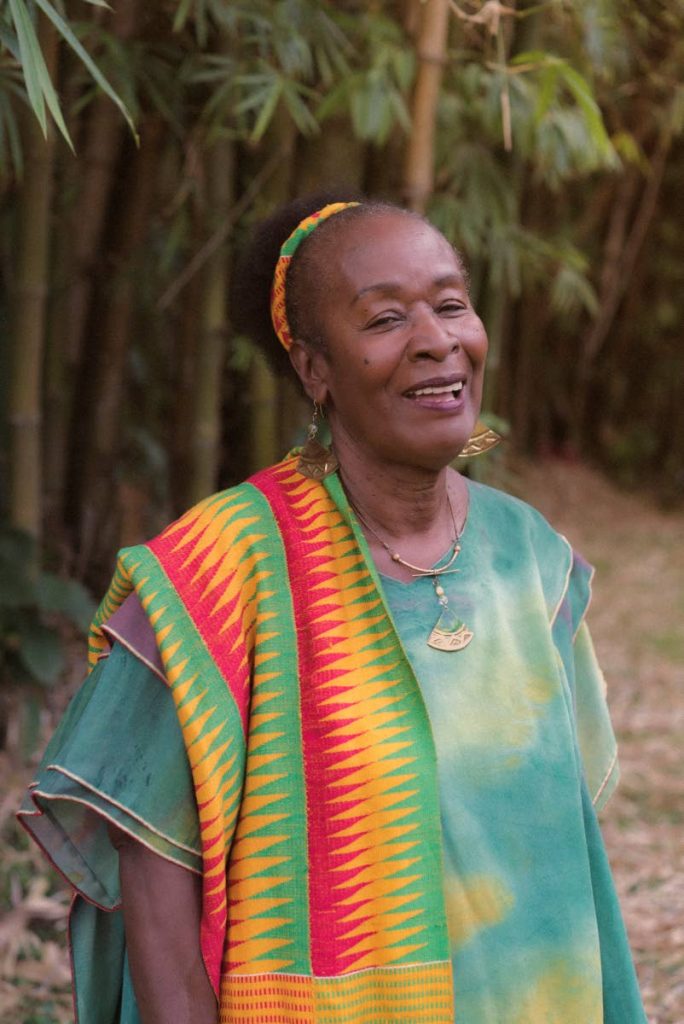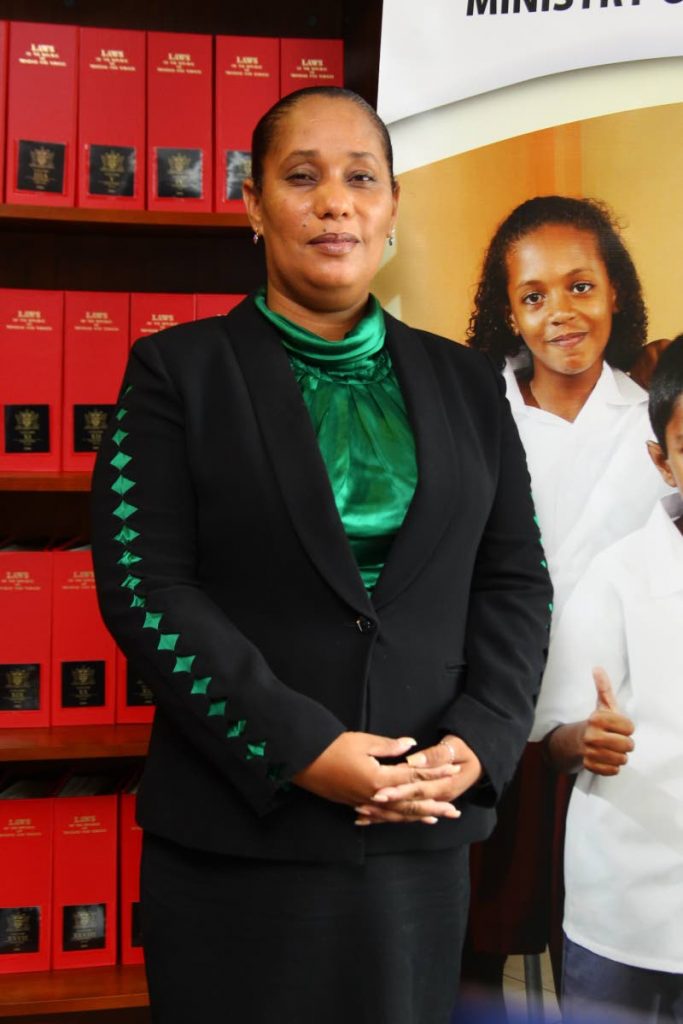On the education of African children

EINTOU SPRINGER
Our Prime Minister has entrusted the education of our children to two mothers. It is their responsibility, as part of the government.
It is, however, an enterprise to which we should all feel committed.
There have been many independent analyses which show African youth to be proportionally higher in number in our prisons. Africans represent an approximately meagre ten per cent of people in business. They are more liable to be in low-paying jobs, or in “makework” schemes which do not uplift.
Many communities where Africans predominate, are poor in infrastructure and have generally unacceptable living conditions. African children are marginalised in an elitist education system. The schools they attend perform poorly.
The statistics are there. I do not need to restate them.
My past informs my concerns of today.
It is 1956. I am going with my mother and brother to Fatima devotions. The tall, spare figure of RC Archbishop Finbar Ryan is at the top of the Laventille Hills. The church, his figure, seemingly dominate the landscape. He rails against the PNM, the communist, antichrist Eric Williams. Those who dare to vote for him are courting excommunication!
Not long after, a representative of the PNM comes to our one-room living space. My mother, now from her job as a domestic, is washing our clothes over the jooking board. Her threadbare skirt is a powerful matrix of protection for us. She is busy. She eh have no time for this politics business!
She hardly looks at the man as he encourages her to vote...until...until...he mentions the word “education.”
She voted PNM, this pote l'eglise woman, risking eternal damnation to give her children a chance to be educated.
We managed, my brother and I, to get among the last of the Exhibitions, that institution of colonial times which gave a very few students the opportunity for free secondary education. But the door for all had been opened.
The incidents of that remarkable time are etched into my consciousness. I know, first hand, that education is critical for the African child.
That education, however, as it is, is elitist, unequal. It does not fill the need of the African child for a positive sense of history, a positive sense of self-worth, recognition of the contribution of African people to the development of our nation. It did not fill it for me, then, and it does not do so now.
I want to insist that our education system will not do justice to the African child until there is recognition that these elements that promote selfhood be deliberately woven into the curriculum; if, as Ralph Henry points out, half of the population is beleaguered by serious problems, then the entire society is affected.
It therefore behoves all of our mothers, all citizens, to be concerned about this marginalisation of the African child. Lest we forget, there is 400 years of psychic trauma; 400 years of deeply engrained notions of racial inferiority with which we must deal.

If every creed and race is to find an equal place, the African must come to the national table possessed of as much self-knowledge as any other group.
In my case, I must admit to being rescued by the remarkable institution called St George’s College, and the strong cultural and ancestral traditions of my Santa Cruz village.
So, fiddling with the curriculum will not do it. I do not believe that as a society we have ever discussed what kind of citizen we want to produce and then fashioned a curriculum to produce a particular result.
As minister of education, Hazel Manning, with her adviser, Dr Michael Alleyne, did some things. She met and talked with artistes and through the Peace Promotion Programme instituted initiatives which had positive effects on our children. I have seen Brother Resistance ring his bell and mesmerise 800 noisy children in a distant part of the country; Muwakil and Healy and Blandin have dealt with HIV/Aids, incest, and peer pressure through Carnival characters, in the play Baby Doll meets Midnight Robber. We were creating, through kaiso, rapso, drama, poetry, music, an alternative pedagogy that was filling the needs of these children.
Another government came into power. The first edict of the new minister of education was that these programmes be immediately stopped. The documented positive results, the requests of the teachers, the artistes, fell on deaf ears. To my mind it was a deliberate act of the utmost cynicism.
Then came our former minister of education, too tethered to the anachronistic Concordat, and antediluvian notions of education to break free and reinstate the programmes or, indeed any other creative initiatives.
So now we have the mothers in charge.
I want to say to them that the arts, culture and visible monuments have pivotal roles to play in creating a level playing field for African children. What if an African child could walk down Kwame Ture Street or go round Kambule Corner? What if there were school trips to the new Emancipation monument?

What if the names Mzumbo Lazare, Henry Sylvester Williams, George Padmore, Tubal Uriah "Buzz" Butler, Elma Francois, Isabel Teshea could roll off the tongues of my children as easily as Prince Swanny? What if the writings of the father of the nation, Dr Eric Williams and CLR James were compulsory reading? Last time I checked neither of our two great scholars was represented on the curriculum. It is a disgrace.
What if kaiso were properly used in the classroom as a repertoire of knowledge, relevant to almost every subject? Can you imagine the lyrics of Chalkdust and Rudder being used to bring our history to life? And Sparrow, long time now, sing Dan is the Man in the Van, ent?
What if a pan theatre were to grace the tip top of the Laventille Hills, replacing the tall spare figure? What if the panyards and gayelles were to be used for training young men and women? What if the panyard were to be treated as a sacred space?
As my friend and brother Ravi-ji says, man make pan; now pan must shape man.
And the PM say Despers going back up the hill. We give thanks...Is time. Is more than time Pat Bishop saying, turning round and steupsing.
What if the so-called local TV station could be used for local programming for our children? Remember storytelling, where we learnt our values? In this digital age, the challenge is to bend the technology to tell our stories.
What if we didn’t have to worry about our children going to school with a natural hairstyle, or with their ides that declare their initiation into the Ifa/Orisa belief system?
We have the opportunity for the transformation of the education system, and consequently, the refashioning of our society. It is a task for us all; parents, teachers, NGOs, private sector, the vast majority of our teachers are women, who are mothers.
The Emancipation Support Committee hosts, annually an African history quiz. Deep and sincere thanks must go to Republic Bank for its interest in and warm support of the programme. One of our Port of Spain schools in a predominantly African area has been winning the competition every year, guided to victory, yes, by an Indian, male teacher!
Sadly, since his transfer, no one on the largely African female staff would commit to taking over that task. The former champion school is now out of the competition; Shame and Scandal.
The African child is entitled to an education system which gives the cultural confidence to be rooted in self; but which allows for the breadth of vision to claim the finest emanations of all humanity.
We, in the creative sector are ready to play the role we can, we must, and indeed, have been playing. Like Mighty Bomber, Ah dreaming...
And Ananse play he fiddle and sing,
We go see what we go see.
Tell me what we go see.
We have a long journey to make
Is what road we going and take
Careful we make mistake
For the children future at stake
And we country
Could make or break.

Comments
"On the education of African children"